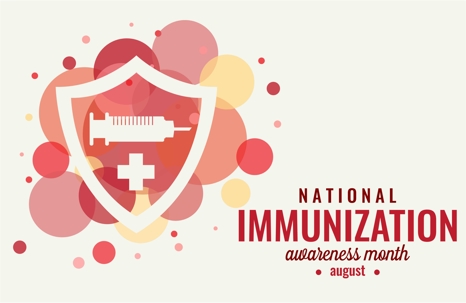Schedule a Consultation
216-621-3000Schedule a Consultation
216-621-3000
August is National Immunization Awareness Month (NIAM), an annual observance that highlights the importance of vaccination for people of all ages.
As a firm that represents families in claims involving medical malpractice – and many mothers and babies in cases of preventable birth injuries – we support healthy choices and healthy pregnancies, which includes immunization.
We’re happy to share information about on-time vaccination from the CDC. You can learn more by visiting the CDC’s NIAM webpage.
From pregnancy through childhood, vaccination helps provide immunity before children are exposed to potentially life-threatening diseases. Here’s a brief overview.
Pregnant mothers can help protect their growing babies by staying current with vaccines before and during pregnancy. The CDC recommends the following vaccines:
Other things to know about vaccines and pregnancy, according to the CDC:
Vaccination help give infants and toddlers a healthy start. For many vaccines, more than one dose is necessary to build and boost immunity. Recommended vaccines include:
As your child enters school, they’ll need additional doses of some vaccines and a flu vaccine each year. Some schools may require a certificate of immunization for a child to enroll.
You can speak with your doctor about recommended vaccines or about getting caught up with any missed vaccines. Recommended vaccines include:
Adolescents need vaccines to extend protection and immunity as childhood vaccines wear off and to provide protection against infections before exposure risks increase. In addition to seasonal flu vaccines, the CDC recommends three vaccines for preteens:
Parents of teenagers should speak to their doctors about staying current with their child’s vaccines and catching up on any recommended ones. The CDC recommends:
People of all ages can benefit from regular vaccination. Although adults may need other vaccines based on their personal health factors, the CDC recommends:
You can use the CDC’s Vaccine Guide to learn more about recommended vaccines.

